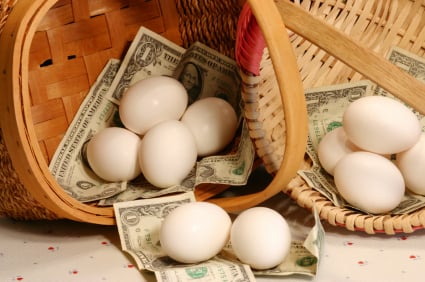How to Make It Through Those Lean Months

Working online is an exciting thing, but there is always a higher degree of uncertainty, especially when it comes to finances. Of course, it depends on the exact nature of what you do online, but if you are a freelance writer working for clients, there are periods when there is no client work at all. If you have your own online publication, and you depend on advertisers and Adsense for revenue, then you are at the mercy of Google updates – among other things.
The stark truth is that winter is coming lean periods do come, and all you can do is to prepare yourself so that you can make it through. Some times may be tougher than others, but if you are prepared, then you’ll survive.
Get as many clients as you can when possible.
If you’re a freelance content creator who depends largely on client work, then you know the drill. There will be times when your workload seems to heavy to carry, and there will be times when you don’t have any work at all that you even find time to go outside and look up at the sky.
The trick is to take advantage of those times when client work is abundant. Take on as much as you can, but two words of caution:
- Know your limits. If you end up biting off more than you can chew, and you don’t deliver, your reputation – and future workload – will suffer.
- Always deliver quality work. In relation to knowing just how much work you can take on for a specific period of time, you have to take into consideration the quality of your work. Take on as much as you want and can, but make sure the quality doesn’t suffer.
Don’t put your all your eggs in one basket.
Online publishing is a diverse world. You can be a freelance writer for hire, while at the same time have your own sites which you make a living out of. You do not have to rely on a single client, a single web site, or any single venture to earn. If you do, then you might find yourself suddenly, seemingly without options at some point.
I say seemingly because there will always be options if your work is good, and you are persistent in looking for work. The point, though, is that it is a good idea to have multiple projects running at the same time, so that if one falls through, you still have other things going on, which can actually get you through lean periods.
Save up for when those lean months come.
Just like the proverbial ant, you need to learn to save up. I am preaching to the choir here, because I am so bad at saving. But now, I am facing some of the leanest months I’ve ever experienced, and boy, am I learning a lesson. I really should have saved up when the sun was shining.
Practical tip: every month, set aside money that is not to be touched. I think that’s what a savings account is all about, yes?
Don’t throw away your credit card.
Okay, this may be a bone of contention, as we all know that credit cards can easily pull you down the path of being broke and in debt to boot. The truth is, though, credit cards come in handy and are not inherently “evil”. Here are a few handy “tricks” when it comes to credit cards (trust me, they’ve saved my life – literally at one point):
- Choose the right card for you. There are so many credit cards out there, that it’s so easy to pick the wrong one just because the offer is so tempting. Before you get one, do your research. As Chris Mettler of CompareCards.com says, “It’s all a matter of knowing what features are important to you, and finding out which credit card/s meet those features.“
- Always pay on time. Some cards don’t charge interest if you pay your whole balance on or before the due date. If you can do this, then your credit score gets bonus points, plus you know you can use the card when your streams of income become trickles instead.
- Leave your card at home. Remember, we’re talking about surviving lean months here. If you’re NOT in that period yet, then there’s probably no reason to use your credit card. My suggestion is to leave it at home if you’re easily tempted by unnecessary purchases. That way, you only have cash, and your spending is limited.



